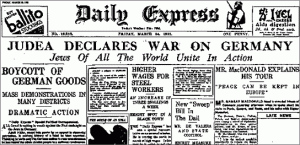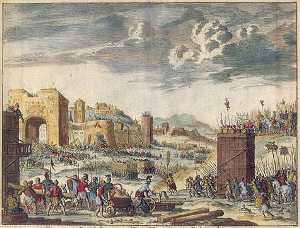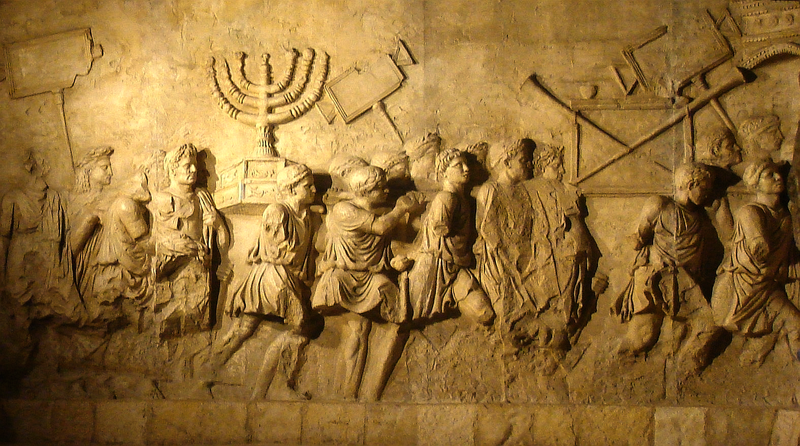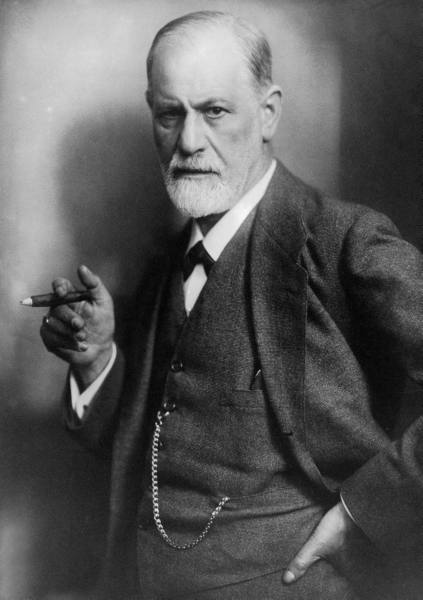
Jacob is portrayed in the Bible as the symbol of truth (e.g. Micah 7:20). Yet, ironically, one subtext that runs through Jacob’s life is his constant confrontation with falsehood, which on the surface does not necessarily paint him in the best light. When buying Esau’s birthright he takes advantage of the fact that he was desperate and cuts a shrewd deal (Genesis 25).
Likewise, he takes advantage of his father – albeit under his mother’s instructions — and even though he does not utter a falsehood he speaks with enough ambiguity to allow Isaac to be deceived if he wished to be deceived (Genesis 27).
Laban, his father-in-law, is the master crook and changed the contract with Jacob ten times. Jacob has no choice but to treat him in a deceptive way and employs means (albeit nothing illegal) to make sure that the sheep come out the way he wants them to come out (Genesis 30). Ultimately, he leaves his father-in-law without giving him notice (Genesis 31).
Jacob does many things which do fit into our stereotype of the prototypical pure, truthful person.
This is a theological issue, not an historical one, so here is not the place to delve into it in proper detail. Nevertheless, this irony regarding Jacob is discussed in the classic commentators and Jewish philosophers more than anything else. It is a difficult thing to reconcile. Suffice it to say that the measure of the ethical man is how he deals with the knotty, gray-areas of life, not necessarily the obvious black-and-white good vs. evil ones.
If you have a brother like Esau you have no good choices. Whatever you do is going to be wrong. And there are many situations in life that are forced upon us in that way. The Jewish people have certainly found themselves in situations that whatever they do is wrong. In the 1930s there was a great debate in the Jewish world whether or not to boycott Germany. In hindsight it made absolutely no difference. Nevertheless, at the time, and in the heat of the moment, there were vehement disagreements within the Jewish community.
Similarly with Jacob. One Midrash says that he was wrong for meeting Esau, giving him gifts and bowing down to him in a subservient manner (Genesis 33). He should have kept a wide berth and avoided him altogether. Another says that he was wrong for not doing more to try to straighten out his brother; for example, he should have offered his daughter Dinah to Esau, in the anticipation that she would have had a positive influence on him. In one viewpoint he was wrong because he was too weak; in another because he was too strong.
Taken together these conflicting traditions reflect a truth in life we sometimes have to accept: Sometimes, you’re damned if you do and damned if you don’t. In a time of trouble and disaster, whatever you do is wrong. There is always room for a complaint against you. Often history puts us into situations where there are no right answers. Unless one is sophisticated enough to realize this truth one is constantly frustrated.
That is why the life of Jacob appears so jagged to us; the pieces do not fit. Jacob’s story is the most difficult. How come he favors Joseph over the other brothers? On the other hand, the child grew up without a mother and showed unusual genius. Indeed, he is the one who will ultimately save them all. Jacob saw that. So he has to invest everything in him. Yet he is criticized for favoring Joseph. There are so many situations in the life of Jacob that no matter what he does he is wrong.
Jewish tradition does not hide Jacob faults that they thought were present – and those faults are within the Jewish people today. However, the truth is the faults are often a result of the impossibilities of life’s choices that confront each of us. We would like to have the pieces of life’s puzzle to fit. We would like to say, “Well, if you are consistent then it will all turn out perfect.” People with life experience realize that sometimes it does not work that way. Sometimes you do everything right and it turns out wrong. Then you are faced with terrible questions. The life of Jacob leaves us with the questions more than with the answers.
This can be seen in the episode of Jacob wrestling an angelic being (Genesis 32). Metaphorically, he is the man who wrestles with life’s most difficult situations. And he wrestles with them all throughout the long, dark night of exile. He cannot seem to get on top, to win, to deliver the one, final knockout blow that will declare him the indisputable champion. That, too, is part of it. Sometimes the challenge is to continue wrestling even in the face of no clear victory. Why bother, a person can tell himself? Just give up. It is too hard.
Not Jacob. He keeps wrestling. He keeps facing the questions… even if he cannot answer them all with the clarity he wishes he had. That is his greatness.











